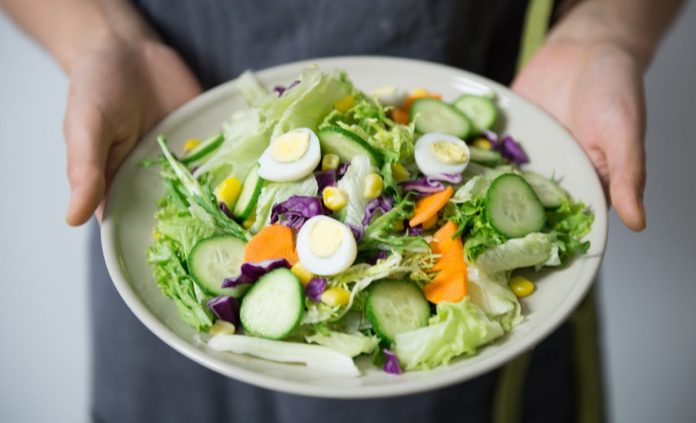Kidney disease is a common problem affecting about 10% of the world’s population.
The kidneys are small but powerful bean-shaped organs that perform many important functions.
They are responsible for filtering waste products, releasing hormones that regulate blood pressure, balancing fluids in the body, producing urine, and many other essential tasks .
There are various ways in which these vital organs can become damaged.
Diabetes and high blood pressure are the most common risk factors for kidney disease. However, obesity, smoking, genetics, gender, and age can also increase the risk
Uncontrolled blood sugar and high blood pressure cause damage to blood vessels in the kidneys, reducing their ability to function optimally .
When the kidneys aren’t working properly, waste builds up in the blood, including waste products from food .
Therefore, it’s necessary for people with kidney disease to follow a special diet.
Diet and kidney disease
Dietary restrictions vary depending on the level of kidney damage.
For example, people in the early stages of kidney disease have different restrictions than those with kidney failure, also known as end-stage renal disease (ESRD).
If you have kidney disease, your health care provider will determine the best diet for your needs.
For most people with advanced kidney disease, it’s important to follow a kidney-friendly diet that helps decrease the amount of waste in the blood.
This diet is often referred to as a renal diet.
It helps boost kidney function while preventing further damage
While dietary restrictions vary, it’s commonly recommended that all people with kidney disease restrict the following nutrients:
Sodium. Sodium is found in many foods and a major component of table salt. Damaged kidneys can’t filter out excess sodium, causing its blood levels to rise. It’s often recommended to limit sodium to less than 2,000 mg per day.
Potassium. Potassium plays many critical roles in the body, but those with kidney disease need to limit potassium to avoid dangerously high blood levels. It’s usually recommended to limit potassium to less than 2,000 mg per day .
Phosphorus. Damaged kidneys can’t remove excess phosphorus, a mineral in many foods. High levels can cause damage to the body, so dietary phosphorus is restricted to less than 800–1,000 mg per day in most patients .
Protein is another nutrient that people with kidney disease may need to limit, as damaged kidneys can’t clear out waste products from protein metabolism.
However, those with end-stage renal disease undergoing dialysis, a treatment that filters and cleans the blood, have greater protein needs.
Each person with kidney disease is different, which is why it’s important to talk to your healthcare provider about your individual dietary needs.
Luckily, many delicious and healthy options are low in phosphorus, potassium, and sodium.
1. Cauliflower
Cauliflower is a nutritious vegetable that’s a good source of many nutrients, including vitamin C, vitamin K, and the B vitamin folate.
It’s also full of anti-inflammatory compounds like indoles and is an excellent source of fiber.
Plus, mashed cauliflower can be used in place of potatoes for a low potassium side dish.
One cup (124 grams) of cooked cauliflower contains :
sodium: 19 mg
potassium: 176 mg
phosphorus: 40 mg
2. Blueberries
Blueberries are packed with nutrients and one of the best sources of antioxidants you can eat .
In particular, these sweet berries contain antioxidants called anthocyanins, which may protect against heart disease, certain cancers, cognitive decline, and diabetes.
They also make a fantastic addition to a kidney-friendly diet, as they are low in sodium, phosphorus, and potassium.
One cup (148 grams) of fresh blueberries contains :
sodium: 1.5 mg
potassium: 114 mg
phosphorus: 18 mg
3. Sea bass
Sea bass is a high quality protein that contains incredibly healthy fats called omega-3s.
Omega-3s help reduce inflammation and may help decrease the risk of cognitive decline, depression, and anxiety .
While all fish are high in phosphorus, sea bass contains lower amounts than other seafood.
However, it’s important to consume small portions to keep your phosphorus levels in check.
Three ounces (85 grams) of cooked sea bass contain:
sodium: 74 mg
potassium: 279 mg
phosphorus: 211 mg
4. Red grapes
Red grapes are not only delicious but also deliver a ton of nutrition in a small package.
They’re high in vitamin C and contain antioxidants called flavonoids, which have been shown to reduce inflammation.
Additionally, red grapes are high in resveratrol, a type of flavonoid that has been shown to benefit heart health and protect against diabetes and cognitive decline.
These sweet fruits are kidney-friendly, with a half cup (75 grams) containing:
sodium: 1.5 mg
potassium: 144 mg
phosphorus: 15 mg
5. Egg whites
Although egg yolks are very nutritious, they contain high amounts of phosphorus, making egg whites a better choice for people following a renal diet.
Egg whites provide a high quality, kidney-friendly source of protein.
Plus, they’re an excellent choice for people undergoing dialysis treatment, who have higher protein needs but need to limit phosphorus.
Two large egg whites (66 grams) contain :
sodium: 110 mg
potassium: 108 mg
phosphorus: 10 mg


























